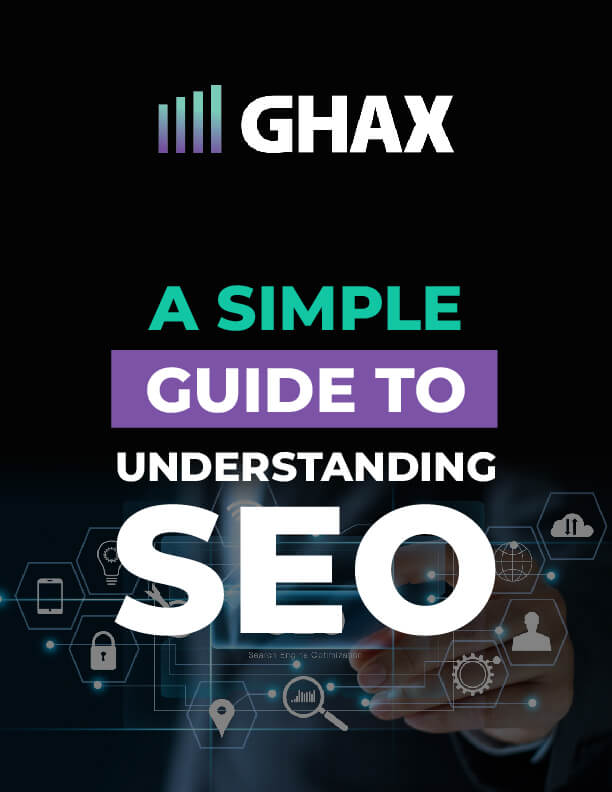Not convinced that working to improve your website’s search engine ranking is worth it? Think again! SEO drives 1,000%+ more traffic than social media, and the leads most businesses gain from their SEO efforts have a 14.6% close rate.
Based on those stats, are you interested in getting your website to the top of search engine rankings? You’re not alone. Unfortunately, getting your web pages to “climb” up those rankings requires quite a bit of effort.
Luckily, with some knowledge and creativity, it is possible to make an impact on your website’s search engine ranking. In this quick guide, we’ll take you through 10 effective strategies that can help give your site the extra boost it needs — no ladders or superpowers required!
The Importance of Organic SEO
There are many ways to make your website shine, but organic SEO is perhaps the best method of getting your content in front of the right audience.
No one likes irrelevant or intruding ads, so with organic SEO, you can manage to attract organic and legitimate traffic to your site in a way that’s both efficient and economical. Sure, SEO requires a big investment upfront, but if you do it right, it’s beneficial long-term.
Likewise, with organic SEO, you get more than just visibility — you also get credibility and trust from prospective customers.
Basically, if organic search engine optimization were your secret garden, then making sure it’s nurtured properly will be the key to unlocking the beauty of your website and allowing it to reach its peak potential.
How to Boost Your Search Engine Ranking
SEO is often seen as something of a magical solution; search engines know all and, if only you can make the right moves, you will be suddenly rewarded for your efforts. In reality, SEO takes time and hard work, but perhaps more importantly still, patience.
Patience isn’t easy to come by in our fast-paced digital world where we expect immediate results, but search engine optimization demands a bit of it. While it can feel like you’re waiting an eternity at times, implementing these 10 SEO tips can help you see results faster.
1. Understand Keyword Search Intent
If you’re looking to boost your search engine ranking, you must understand something called search intent.
This is because Google and other search engines use keywords as clues. When a user enters a keyword, the search engine is trying to figure out exactly what they’re searching for and in what context.
Matching the type of content with the keyword intent can ensure that searchers have a positive experience when they find your website, ultimately improving the chances of higher ranking in search engine results.
How can you match users’ search intent to the content you create?
Start by doing a thorough analysis of user search activity and getting an understanding of the needs and wants of potential visitors. Then make sure the content on your site is accurately matched with relevant search terms and search phrases that are closely related to those needs.
2. Focus on Longtail Keywords
Longtail keywords are long and often specific phrases that can be a lifesaver for your SEO strategy. They tend to have less competition than shorter, more generic terms. The benefits of using longtail keywords include the fact that they’re:
- Easier to rank for
- Less competitive
- More targeted
As longtail keywords are less vague than short ones, they can be useful if you’re finding it difficult to rank for a generic term. Focus on incorporating relevant phrases as part of your SEO efforts to get the most out of every keyword phrase.
3. Write Helpful Content
When seeking to boost your search engine ranking, one of the most powerful things you can do is write helpful content. Quality and informative content will not only help raise your visibility in search engines but also foster trust from site visitors.
Write content that answers questions and helps people solve their problems. Focus on providing value to readers by delivering original, relevant, and timely information. We know, we know. You likely hate writing. But, writing helpful content for SEO doesn’t have to feel like a chore.
In fact, it can be a fun way to explore your creativity and reach people who are searching online for answers to their questions, solutions to their problems, and helpful advice. SEO content writing is all about providing readers with useful information that will include the keywords and phrases they search for — so write in an easy-to-navigate way while still putting a creative spin on it.
4. Optimize Your Titles
Titles are the first thing searchers see and can be the deciding factor between whether or not they click on your page.
Consider how best to phrase keywords that describe what your content offers and use them as a headline. Make sure you’re also including any relevant company or keyword names amongst this information so that when people search for it, they will find you easily.
Incorporate benefits into your titles and meta descriptions. It’s also a great idea to use action keywords that encourage people to click through. This includes words such as “view,” “download,” “access,” or even “explore.”
All in all, optimizing titles ensures higher visibility and ranking, which leads to increased web traffic and more customers.
5. Understand How to Use Header Tags
Used to structure your content, header tags have been around since search engines first started indexing pages. They’re HTML elements. You know, those H1 and H2 header tags you likely see when you go to upload a blog on your website.
They’re also incredibly important as header tags:
- Tell the reader where one section ends and another begins
- Highlight keywords to search engine bots
- Signal the order of importance of content sections for search engine rankings
- Act as a “hook” for readers browsing your website
Pay attention to how you’re structuring each page’s header tags. Incorporate keywords into your H1s and make sure you’re not cannibalizing your content.
6. Optimize Your Website Structure
Optimizing your structure includes:
- Making sure you have an organized website hierarchy
- Using keywords strategically
- Including relevant internal links for easy navigation
Optimizing the structure of each page will also help tremendously in helping it show up higher on search engine rankings. This gives clear signals to Google and other search engines about what each page should be ranked for.
7. Don’t Forget About Linking
Don’t forget the power of linking when you’re looking to boost your search engine ranking!
Linking within your website provides visitors with relevant and up-to-date information whilst also enabling search engines to crawl and index your site more efficiently. Meanwhile, external linking helps establish a network of relationships between businesses and will even result in referral traffic if you find reliable sources.
Just be sure to link to reputable, trusted websites. When in doubt, it’s always a great idea to link to non-competitors in the government and educational spaces.
8. Improve Your Site’s Speed
Improving your website speed can have a big impact on your SEO because search engines factor in page loading times when ranking results, so making sure that your site loads quickly can give you the edge over other sites for certain keywords.
And, taking steps to improve your site’s speed is easier than you might think.
Installing a caching plugin, compressing images, reducing redirects, and cutting down on unnecessary plugins are just some of the ways you can improve your site’s speed and improve your SEO rankings at the same time.
9. Optimize Your Website for Mobile
Optimizing your website for mobile users not only improves the user experience but also gives you an advantage with Google’s algorithms.
Optimization should include:
- Making sure that all page elements on the page are responsive and scalable to fit smaller screen sizes
- Tweaking images and other media so they can be easily viewed on a small device
- Streamlining content for faster loading
It also means ensuring that your site loads quickly. If you’re noticing super slow loading times, it might be time to get in touch with your hosting provider about your hosting plan.
10. Fix Technical Issues
Finally, fixing technical issues is an absolute must to get your page the attention it needs. Fix things like:
- Broken links
- Old plugins
- Faulty redirects
- Duplicate content
All of this can cause your ranking to drop or stop your pages from being properly indexed. Keeping up with ensuring all of these issues are addressed will go a long way in making sure that you’re doing everything you can to boost your search engine ranking.
Get Help With Search Engine Optimization
At GHAX Digital Marketing, we help you generate more sales through customized digital marketing strategies. This means that when it comes to search engine optimization, we can help provide you with insight, expertise, and tested strategies that’ll propel you to success.
Our team of experts knows how to help you boost your search engine ranking in the most effective way possible. Ready for a website that stands out among the competition?
Get in touch to chat about your business needs and marketing goals.




